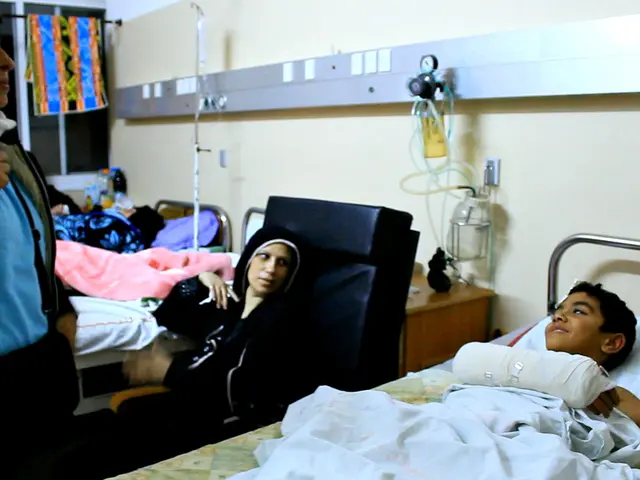Health Officials and Minister Warken Mutually Pledge Mutual backing in Healthcare Sector - Health Professionals and Minister of Health Exchange Commitments of Mutual Backing
Government and Medical Profession Affirm Commitment to Supportive Relationship in German Healthcare
Health Minister Nina Warken (CDU) and the president of the German Medical Association, Klaus Reinhardt, have expressed their commitment to open communication and collaboration in shaping the future of the German healthcare system.
In a dialogue at a medical conference held in Leipzig, Minister Warken expressed her serious intent to reduce bureaucratic burdens on medical practices and welcomed recommendations from the medical profession. She highlighted the planned reduction of bureaucracy as one of the key measures in the coalition agreement.
Furthermore, Minister Warken outlined her proposal for patients to visit their primary care physician before consulting specialists, emphasizing the importance of a collaborative approach with the medical profession to initiate healthcare reforms effectively.
President Reinhardt echoed the necessity of understanding long-term perspectives while addressing costs in the healthcare sector. He expressed reservations about the planned legal guarantee of appointments, suggesting it could lead to forced coordination of treatment. Instead, he advocated for fostering a culture of trust to effectively tackle plans for bureaucracy reduction.
Reinhardt welcomed the institution of primary care practitioners as the first point of contact for patients, but urged the development of an intelligent system and noted existing proposals from the medical profession.
Aside from the dialogue between Minister Warken and President Reinhardt, the German Medical Association's conference covers the potential role of artificial intelligence in healthcare. Discussions revolve around the opportunities AI presents for enhancing healthcare efficiency and patient care, along with considerations for where and how medical tasks might be supported or replaced by AI.
The German healthcare system is undergoing significant changes to address current challenges and future demands, with plans by the government, political parties, and the medical profession itself. While specific details about AI and bureaucracy reduction initiatives are not widely publicized, the focus remains on digital transformation, sustainability, and structural reforms aimed at improving efficiency and patient care while addressing financial challenges.
"The German health minister, Nina Warken, suggests incorporating vocational training programs for healthcare professionals to enhance the efficiency of the healthcare system and implement structural reforms effectively, as part of the digital transformation plans."
"At the German Medical Association's conference focusing on the potential role of artificial intelligence in healthcare, discussions on mental health and wellness could benefit from vocational training of therapists to provide up-to-date and effective therapies and treatments, fostering a holistic approach to health and well-being."








